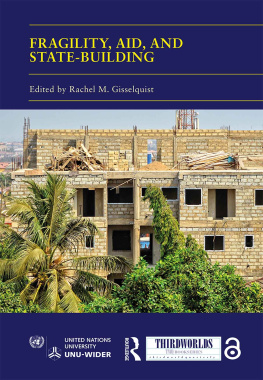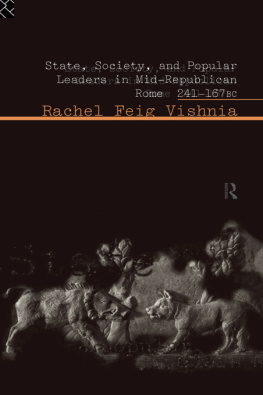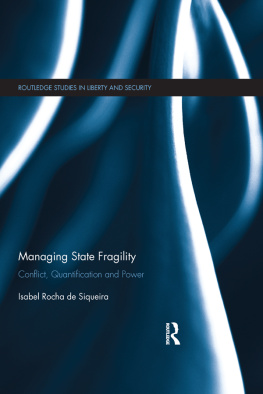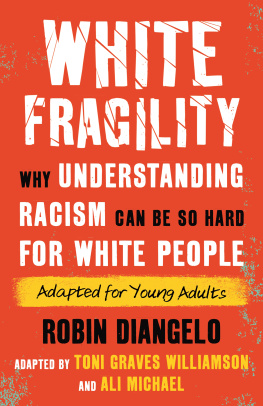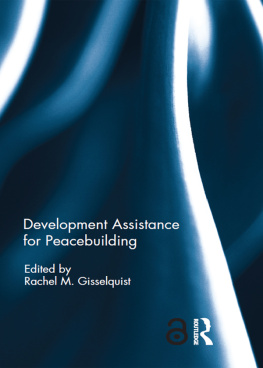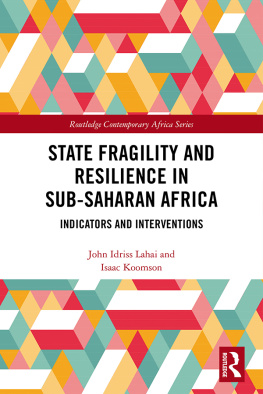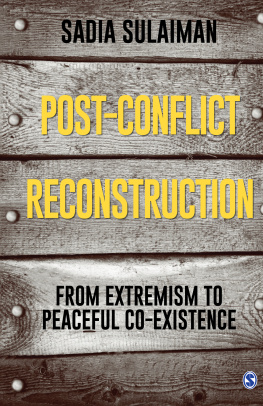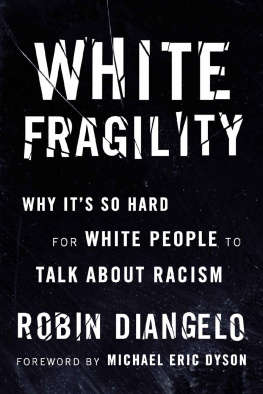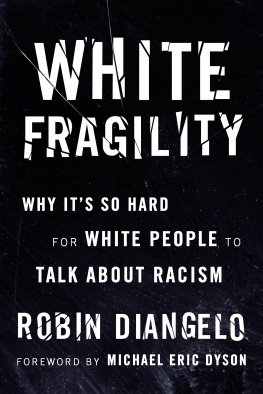Fragility, Aid, and State-building
Fragile states pose major development and security challenges. Considerable international resources are therefore devoted to state-building and institutional strengthening in fragile states, with generally mixed results. This volume explores how unpacking the concept of fragility and studying its dimensions and forms can help to build policy-relevant understandings of how states become more resilient and the role of aid therein. It highlights the particular challenges for donors in dealing with chronically (as opposed to temporarily) fragile states and those with weak legitimacy, as well as how unpacking fragility can provide traction on how to take local context into account. Three chapters present new analysis from innovative initiatives to study fragility and fragile state transitions in cross-national perspective. Four chapters offer new focused analysis of selected countries, drawing on comparative methods and spotlighting the role of aid versus historical, institutional and other factors. It has become a truism that one-size-fits-all policies do not work in development, whether in fragile or non-fragile states. This should not be confused with a broader rejection of off-the-rack policy models that can then be further adjusted in particular situations. Systematic thinking about varieties of fragility helps us to develop this range, drawing lessons appropriately from past experience.
This book was originally published as a special issue of Third World Quarterly, and is available online as an Open Access monograph.
Rachel M. Gisselquist is a political scientist and currently a Research Fellow with UNU-WIDER. She works on the politics of the developing world, with particular attention to ethnic politics and group-based inequality, state fragility, governance and democratization in sub-Saharan Africa. She holds a PhD from MIT.
ThirdWorlds
Edited by Shahid Qadir, University of London, UK
ThirdWorlds will focus on the political economy, development and cultures of those parts of the world that have experienced the most political, social, and economic upheaval, and which have faced the greatest challenges of the postcolonial world under globalisation: poverty, displacement and diaspora, environmental degradation, human and civil rights abuses, war, hunger, and disease.
ThirdWorlds serves as a signifier of oppositional emerging economies and cultures ranging from Africa, Asia, Latin America, Middle East, and even those Souths within a larger perceived North, such as the U.S. South and Mediterranean Europe. The study of these otherwise disparate and discontinuous areas, known collectively as the Global South, demonstrates that as globalisation pervades the planet, the south, as a synonym for subalterity, also transcends geographical and ideological frontier.
For a complete list of titles in this series, please visit https://www.routledge.com/series/TWQ
Recent titles in the series include:
Corruption in the Aftermath of War
Edited by Jonas Lindberg and Camilla Orjuela
Everyday Energy Politics in Central Asia and the Caucasus
Citizens Needs, Entitlements and Struggles for Access
Edited by David Gullette and Jeanne Faux de la Croix
The UN and the Global South, 1945 and 2015
Edited by Thomas G. Weiss and Pallavi Roy
The Green Economy in the Global South
Edited by Stefano Ponte and Daniel Brockington
Food Sovereignty
Convergence and Contradictions, Condition and Challenges
Edited by Eric Holt-Gimnez, Alberto Alonso-Fradejas, Todd Holmes and Martha Jane Robbins
The International Politics of Ebola
Edited by Anne Roemer-Mahler and Simon Rushton
Rising Powers and South-South Cooperation
Edited by Kevin Gray and Barry K. Gills
The Local Turn in Peacebuilding
The Liberal Peace Challenged
Edited by Joakim jendal, Isabell Schierenbeck and Caroline Hughes
Chinas Contingencies and Globalization
Edited by Changgang Guo, Liu Debin and Jan Nederveen Pieterse
The Power of Human Rights/The Human Rights of Power
Edited by Louiza Odysseos and Anna Selmeczi
Class Dynamics of Development
Edited by Jonathan Pattenden, Liam Campling, Satoshi Miyamura and Benjamin Selwyn
Fragility, Aid, and State-building
Understanding Diverse Trajectories
Edited by Rachel M. Gisselquist
Offshore Central Asia
Edited by John Heathershaw and Alexander Cooley
Third World Approaches to International Law
Edited by Amar Bhatia, Usha Natarajan, John Reynolds and Sujith Xavier
Aid to Support Fragile States
The Challenge of Chronic State Weakness
Edited by Rachel M. Gisselquist
Fragility, Aid, and State-building
Understanding Diverse Trajectories
Edited by
Rachel M. Gisselquist
First published 2017
by Routledge
2 Park Square, Milton Park, Abingdon, Oxon, OX14 4RN, UK
and by Routledge
711 Third Avenue, New York, NY 10017, USA
Routledge is an imprint of the Taylor & Francis Group, an informa business
2017 UNU-WIDER. Originally published as Open Access.
The Open Access version of this book, available at www.tandfebooks.com, has been made available under a Creative Commons Attribution-Non Commercial-No Derivatives 4.0 license.
Trademark notice: Product or corporate names may be trademarks or registered trademarks, and are used only for identification and explanation without intent to infringe.
Cataloguing in Publication Data
A catalogue record for this book is available from the British Library
ISBN 13: 978-1-138-06971-8
Typeset in Times New Roman
by RefineCatch Limited, Bungay, Suffolk
Publishers Note
The publisher accepts responsibility for any inconsistencies that may have arisen during the conversion of this book from journal articles to book chapters, namely the possible inclusion of journal terminology.
Disclaimer
Every effort has been made to contact copyright holders for their permission to reprint material in this book. The publishers would be grateful to hear from any copyright holder who is not here acknowledged and will undertake to rectify any errors or omissions in future editions of this book.
Contents
Citation Information
The chapters in this book were originally published in Third World Quarterly, volume 36, issue 7 (2015). When citing this material, please use the original page numbering for each article, as follows:
Introduction
Varieties of fragility: implications for aid
Rachel M. Gisselquist
Third World Quarterly, volume 36, issue 7 (2015), pp. 12691280
Chapter 1
Disaggregating state fragility: a method to establish a multidimensional empirical typology
Jrn Grvingholt, Sebastian Ziaja and Merle Kreibaum
Third World Quarterly, volume 36, issue 7 (2015), pp. 12811298
Chapter 2
Conceptualising state collapse: an institutionalist approach
Daniel Lambach, Eva Johais and Markus Bayer
Third World Quarterly, volume 36, issue 7 (2015), pp. 12991315
Chapter 3
Towards a theory of fragile state transitions: evidence from Yemen, Bangladesh and Laos


